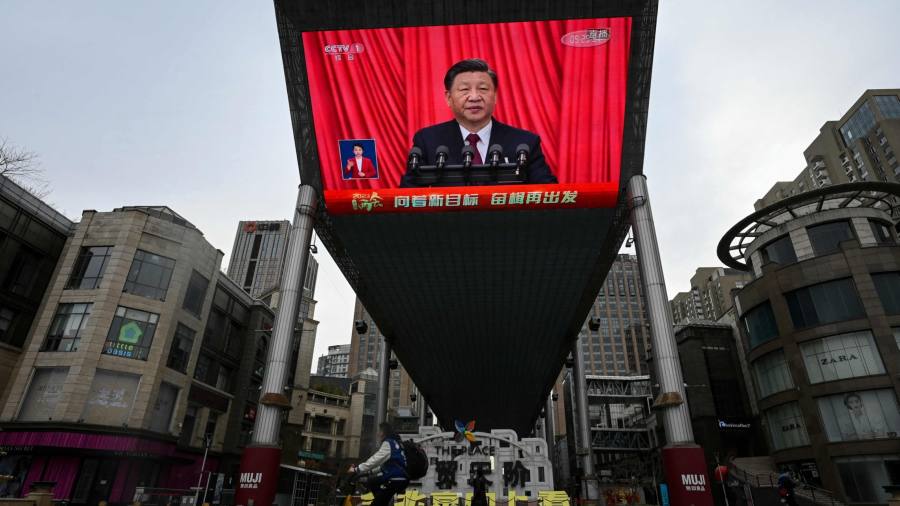
China has unveiled reforms that will allow President Xi Jinping to exert closer direct control over the government in areas ranging from the financial sector to the integration of technologies with civilian and military uses.
State media on Thursday evening announced new Communist party commissions that will supervise government ministries and regulators under the State Council, China’s cabinet, as Xi further consolidates political oversight of the organs of the state.
The reforms include a new central commission for science and technology that will oversee a revamped ministry of science and technology. The commission’s purpose will be to “strengthen the party’s leadership” on scientific and technological reform and to “co-ordinate the integration of civil-military technological development”.
China’s drive for “military-civil fusion”, under which the Communist party has ordered that new technologies developed by the private sector must be shared with the military, is an important source of tension with the US.
Worries over China’s military expansion are one motivation for Washington’s increasing efforts to block China’s access to advanced semiconductor technology.
Under China’s system, Xi, who is embarking on an unprecedented third five-year term as president, is the head of state but he derives most of his power from his other roles as Communist party and military chief.
While the party has always reigned supreme over China’s state organs, Xi, the country’s most powerful leader since Mao Zedong, has further relegated the government to more of an execution role, analysts say.
“The organisation of the party and the state . . . have not yet fully adapted to the requirements of comprehensively building a modern socialist country and promoting the great rejuvenation of the Chinese nation,” state news agency Xinhua said.
Beijing this month announced a shake-up of its financial regulators and science and technology ministry. But the setting up of the new party commissions on Thursday was arguably a more important development, analysts said.
The new party bodies also include a “central commission for finance” that will “centralise and unify leadership” of core senior party figures and replace an existing government regulatory committee under the State Council. The new commission will become the top-level planning and co-ordination body of the party’s 205-member Central Committee for the financial sector.
A separate body will also be created to reinforce the party’s political and ideological work in the financial system.
The party also moved to increase its direct oversight of Hong Kong. An existing office under the State Council would be revamped and would instead answer directly to the party leadership rather than the cabinet.
Beijing has sharply increased its supervision of Hong Kong’s affairs after the city was swept by anti-government protests in 2019. In 2020, China introduced a new national security law to quell dissent in the city and rounded up politicians from the opposition pro-democracy parties.
Lau Siu-kai, an adviser to Beijing from the Chinese Association of Hong Kong and Macau Studies, said the reshuffle would consolidate the party leadership’s power in Xi’s third term. He said the new office overseeing Hong Kong was in line with Beijing’s implementation of a “patriots only” policy in the city following the 2019 protests.
State media did not announce which senior party cadres would lead the new commissions. China’s rubber-stamp parliament at the weekend confirmed Xi’s number two, Li Qiang, as premier or head of the State Council.